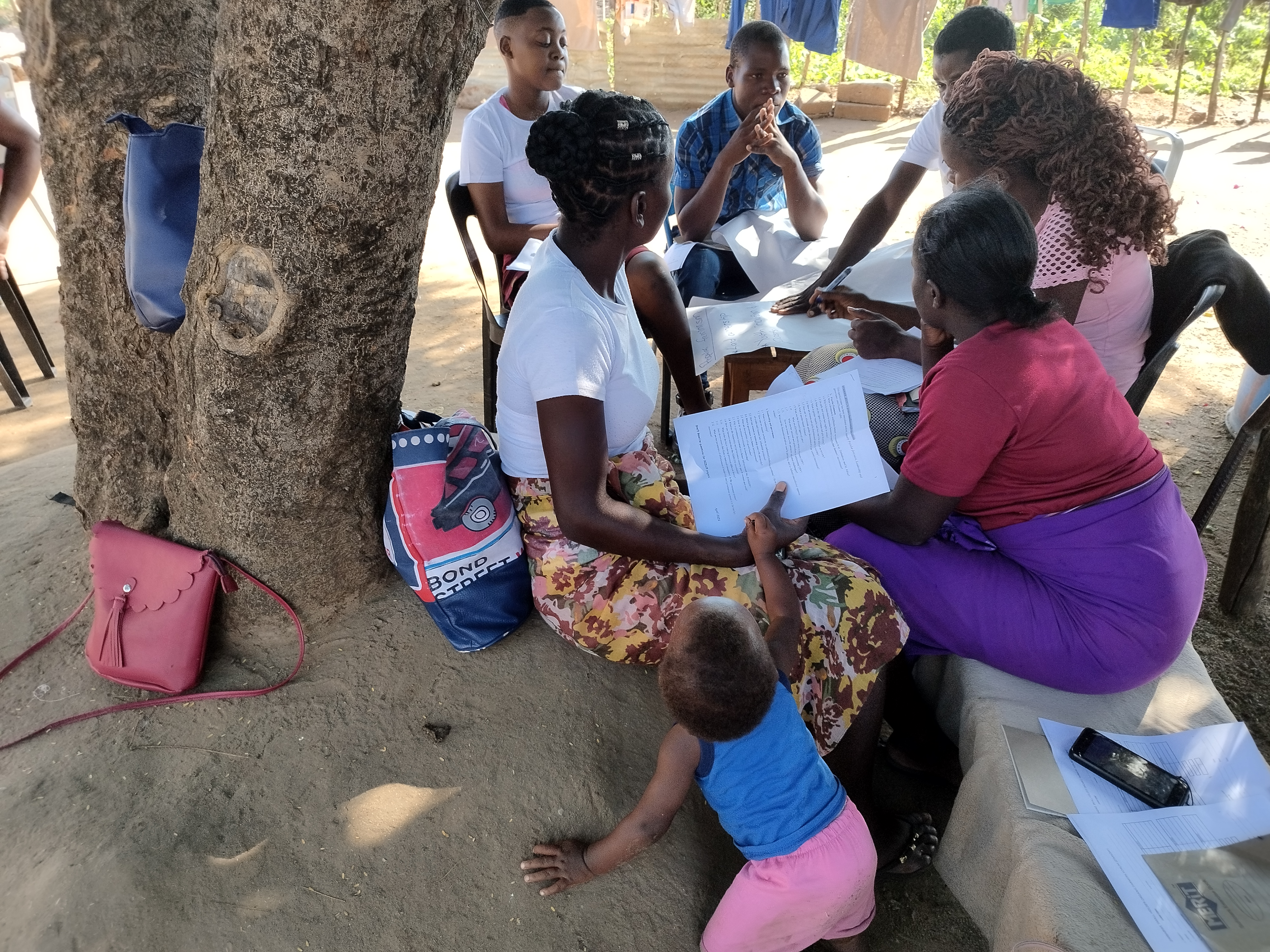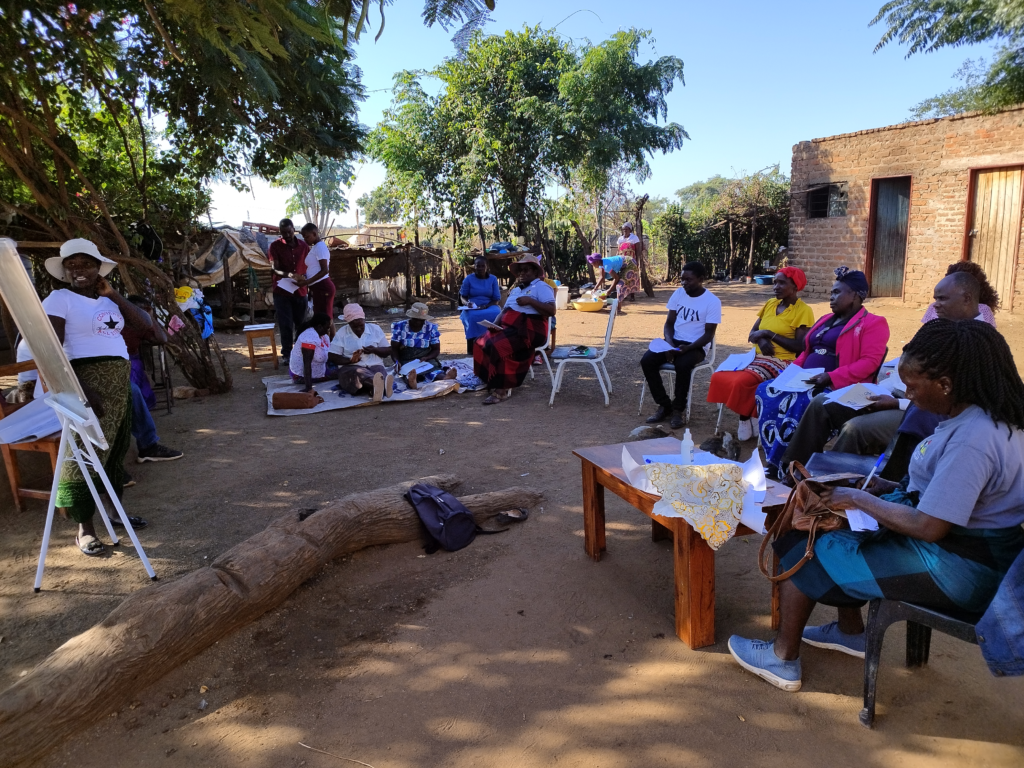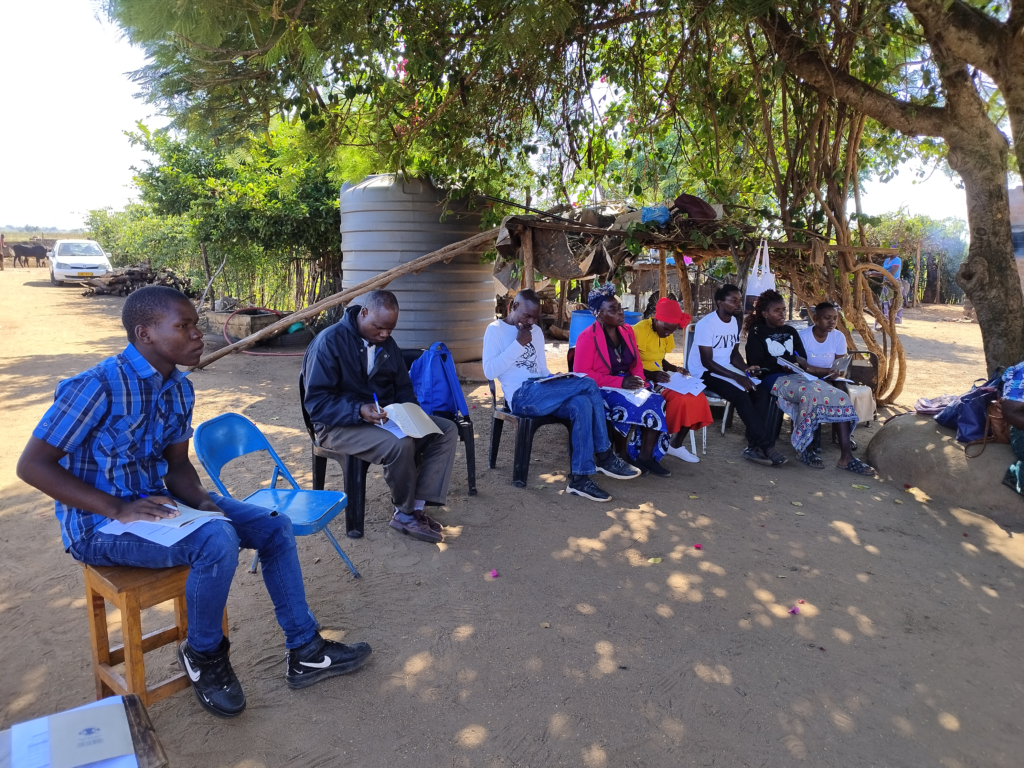
ZIMSOFF is implementing the BIZLUR project whose main target social groups are women and youths. The project has three interrelated themes namely peasant rights, leadership and governance and popular feminism. Understanding of these critical issues by the target groups is at different levels. Thus, a participatory capacity assessment to assess knowledge gaps and opportunities to leverage on when implementing the BIZLUR project was carried out in May 2023.
A total of 80 peasants drawn from all the 4 clusters in the country participated in the survey. Sixteen (16) of the peasants participated in the drafting of the questionnaire that was used to gather data used in the capacity assessment while 64 peasants (16 from each cluster) participated in community dialogues where discussions focused on the three themes highlighted already. To ensure richness and diversity of views, participants were drawn from women and youth farmers and ZIMSOFF leadership. Adult education methodology that included farmers critically reflecting on their lived realities in plenary sessions or during group work, storytelling by the host peasants and the facilitators while sitting around the fire in the evening (facilitators stayed in the host communities) and songs and dances.
Several observations can be discerned from the study. Peasants were quite articulate of their issues and spoke with passion as they were engaging with issues that are pertinent to both their class and collective struggles. What came out clearly was that peasants are aware of the challenges they face with regards to leadership and governance and peasant popular feminism. However, they had limited understanding of peasant rights issues as enshrined in UNDROP. Overall, patriarchy is a key factor that negates women and youths’ active participation in both farming and the struggle for peasant rights. A myriad of practical solutions was suggested, including the need for training and creation of dialogue platforms for all stakeholders to engage were suggested by the peasants. While the challenges are many, they are not insurmountable.

The capacity gap assessment not only offered peasants an opportunity to reflect on their situation and air their felt needs for inclusion in the BIZLUR project, it was also intellectually empowering as the peasants led the research process with facilitators only guiding the process. A synthesis report presenting the main findings has since been produced and is guiding ZIMSOFF farmers as they implement the BIZLUR project.

